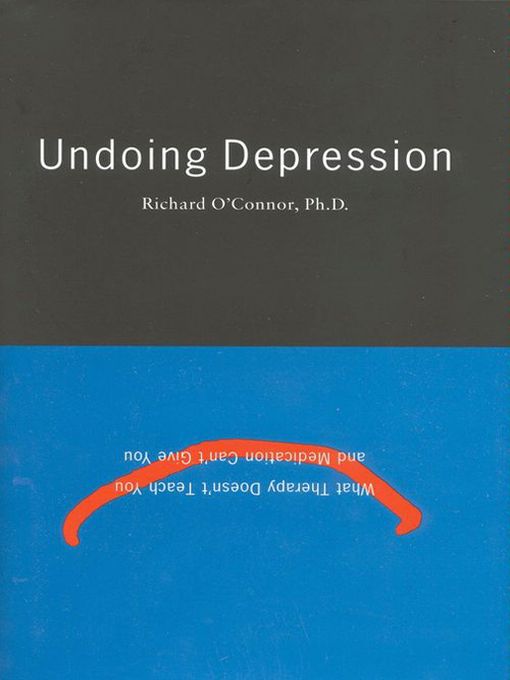
Undoing Depression
What Therapy Doesn't Teach You and Medication Can't Give You
فرمت کتاب
ebook
تاریخ انتشار
2010
شابک
9780316071352
کتاب های مرتبط
- اطلاعات
- نقد و بررسی
- دیدگاه کاربران
نقد و بررسی

March 31, 1997
Psychotherapist and family counselor O'Connor attempts in his first book to bridge the chasm between the various approaches to treating depression--including medication, psychotherapy and self-help. Emphasizing the complexity of this state, which "is not a feeling, but the inability to feel," O'Connor suggests that a combination of approaches is necessary for full long-term recovery, explains the role of each approach and then focuses on the often overlooked role of self-help. Claiming that depressives have learned inappropriate skills for coping with their affliction and simply don't know how to replace them, he addresses five main areas in which new habits can be practiced: thinking, feeling, behavior, relationships and self-image. Calling upon both his clinical and personal experiences with depression, O'Connor warns that "Recovery from depression is hard work." Adding that working hard to change habits and fully recover is better than working hard to hide and/or manage depression, he lists 12 clear principles for recovery, including feeling feelings, communicating directly, cultivating intimacy and practicing detachment. O'Connor also dispels some myths (that depression is an emotion; that children can't experience depression), and imparts a sense of urgency for both depressives and mental health professionals to understand and treat all aspects of the growing "epidemic of depression." Readers will find this an uncommonly thorough and useful guide to overcoming a painful disease.

November 1, 1997
A practicing psychotherapist, O'Connor certainly respects the work of health care professionals in the area of depression. But as someone who has struggled with this affliction himself, O'Connor also believes that present-day therapy and medication treatments often fail, for those suffering from long-term depression "persist in self-destructive behavior because they don't know how to do anything else." In a sense, they don't know how to live without depression. O'Connor's book tries to get people to see the ingrained behaviors for what they are as a first step to altering their emotional habits. He includes a number of targeted exercises here. Next, O'Connor focuses outward, showing ways to incorporate this new knowledge into one's marriage, family, and work. Throughout, O'Connor's concern is developing a healthy psyche through awareness. This personally informed and deeply compassionate book should be a fine addition to self-help holdings. ((Reviewed November 1, 1997))(Reprinted with permission of Booklist, copyright 1997, American Library Association.)

























دیدگاه کاربران